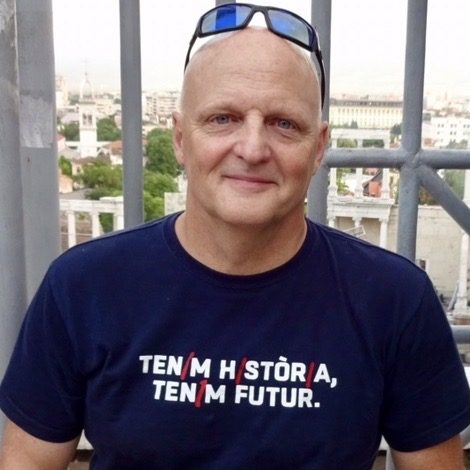Look at all those people playing at life.
Be careful my friend, life is not a game.
It’s about being worthy.
And don’t fool yourself, you’ve got only one…
Life is not a game my friend.
It’s the art of coming together
Despite all of life’s many separations
-Vinicius de Moraes “The Blessing Samba” (1963)
I belong to a generation of frivolous people and live in a society built over the last four decades, in many key respects, for the exercise of frivolity. We received perhaps the most generous social inheritance of any group in human history, and after wasting it in record time on useless wars and ephemeral products, we then decided to systematically plunder the institutions that provided us with almost everything we received.
And we Americans, being the generous sorts we are, have gone all out to share the incredible triviality of our ways of thinking and acting with our dear European friends, people who for years resisted the siren song of our materialist show, but who in more recent times, slowly yielded to its underlying logic.
To speak of frivolity is to speak implicitly of its opposite quality: seriousness, something that nowadays is often confused with sadness and viewed more and more as a social defect.
In the US, there are few things that can cause more allergic reactions in our elite social spaces, including academia, than to talk openly about things that until recently were considered to be among the quintessential components of a serious approach to life: death, loneliness, love, beauty, friendship, decadence, and the endless mysteries of human cruelty. In a curious reversal of roles, those who want to integrate these issues into their daily conversations are seen today as frivolous, while those who flee them and deal with supposedly practical topics, such as making a lot of money or coldly controlling the life destinies of others, are considered serious people.
Or, as my daughter said after graduating from one of the supposedly most prestigious universities in the country (a ‘serious’ institution par excellence): “Dad, to study at a university like this is to receive constant invitations to take a lifetime trip on an elevated highway that allows you to observe the messiness of people’s lives in the cities and towns below, with a self-satisfied smile on your face, while lamenting with subtle but clear condescension their inability to achieve what you’ve achieved.”
It will, no doubt, be pointed out to me that the powerful have always been frivolous and possessed of a marked ability to present their organized looting to us in transcendent and solemn tones. And it is true.
But I think there is a big difference today. The economic elites’ almost complete control of the media has allowed them to convince many of us that selfishness disguised as kindness is not a particular trait of their class, but rather a basic and absolutely predominant attribute of all human beings; that is, that we are all, at heart, as cynical as they are. And in so doing, they have robbed us, without many of us fully understanding it, of what have always been our most powerful weapons in the fight for justice: sincerity, empathy, compassion, and outrage. In short, all the key elements of the moral imagination.
I have good friends who, while openly admitting their almost complete ignorance of history; that is, the record of human reactions to moral challenges in various contexts in the past, are able to say flatly and with great vehemence that the human being has never been anything but a seeker of individual interests. And this from individuals who have shown time and again over the years of our friendship an enormous and repeated ability to behave altruistically!
How can this paradox be explained? It is, at its core, a problem of language. People can only articulate ideas and sentiments for which they have readily accessible words and terms, which is, of course, why Milton Friedman, a founding guru of neoliberalism, spoke about the need to control the inventory of “ideas lying around” in advance of our inevitable social and economic crises. In other words, if people have been told all their lives that looters are serious and that empathetic people are frivolous, it’s hard for many among them to imagine any other configuration of reality.
Now that death and its many offshoots—that is, seriousness in capital letters—have mocked our learned attempts to deny it as a primary element of our everyday moral reasoning, it might be the time to forcefully reject the absurdity of the master narratives of these who tell us that life is a frivolous game and to remind them and everyone else, over and over again, that to have enduring worth it must center on the art of coming together in the face of our individual and collective fears.
Published under a Creative Commons Attribution 4.0 International License
For reprints, please set the canonical link back to the original Brownstone Institute Article and Author.



